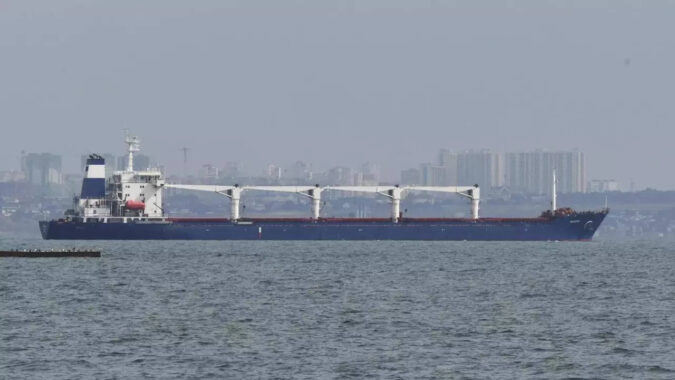ISTANBUL: The Ukraine Black Sea grain deal has been extended for two more months, Turkish President Tayyip Erdogan said on Wednesday, one day before Russia could have quit the pact over obstacles to its grain and fertilizer exports.
Erdogan’s comments, made in a speech to officials of his ruling AK Party, came after the last ship left a Ukrainian port under the deal, which allows for the safe export via the Black Sea of Ukrainian grain and was due to expire on Thursday.
“The Black Sea grain corridor deal has been extended by two months with the efforts of Turkey,” he said in his televised speech, also thanking the Russian and Ukrainian leaders and UN Secretary General Antonio Guterres for their help.
The United Nations and Turkey brokered the Black Sea deal for an initial 120 days in July last year to help tackle a global food crisis that has been aggravated by Moscow’s invasion of Ukraine, one of the world’s leading grain exporters.
Moscow agreed to extend the Black Sea pact for a further 120 days in November, but then in March it agreed to a 60 day extension – until May 18 – unless a list of demands regarding its own agricultural exports was met.
To convince Russia in July to allow Black Sea grain exports, the United Nations agreed at the same time to help Moscow with its own agricultural shipments for three years.
Erdogan’s comments, made in a speech to officials of his ruling AK Party, came after the last ship left a Ukrainian port under the deal, which allows for the safe export via the Black Sea of Ukrainian grain and was due to expire on Thursday.
“The Black Sea grain corridor deal has been extended by two months with the efforts of Turkey,” he said in his televised speech, also thanking the Russian and Ukrainian leaders and UN Secretary General Antonio Guterres for their help.
The United Nations and Turkey brokered the Black Sea deal for an initial 120 days in July last year to help tackle a global food crisis that has been aggravated by Moscow’s invasion of Ukraine, one of the world’s leading grain exporters.
Moscow agreed to extend the Black Sea pact for a further 120 days in November, but then in March it agreed to a 60 day extension – until May 18 – unless a list of demands regarding its own agricultural exports was met.
To convince Russia in July to allow Black Sea grain exports, the United Nations agreed at the same time to help Moscow with its own agricultural shipments for three years.
